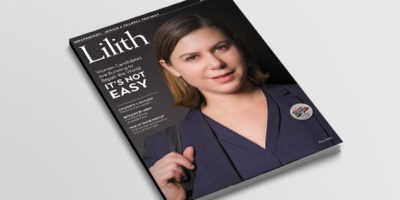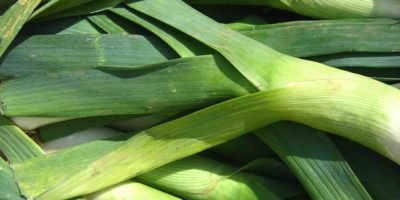Slippery Questions about Salvation and Faith
A River Could Be a Tree by Angela Himsel (Fig Tree Books, $23.95) takes its title from her father’s cautionary words to the author when she was a young girl: “God created a role for everything in the universe. Just think what would happen if a tree thought it could be a river!” And yet Himsel’s personal transformation, chronicled in this candid and insightful memoir, is just as dramatic. She grows up as the seventh of 11 children in an evangelical Christian family in rural Indiana, where her parents, both of German descent, fall under the sway of a charismatic evangelist preacher named Herbert Armstrong, leader of the Worldwide Church of God. Armstrong convinces them that faith in Jesus, heavy tithing (which, unbeknownst to them, serves primarily to fund Armstrong’s private jet, crystal chandeliers, and Thai prostitutes), and a rejection of the evils of American culture will save their souls, which will be raptured to the ancient Jordanian city of Petra upon Jesus’s imminent return. When Himsel’s younger sister Abby, then nine, becomes so ill with a heart condition that she can no longer attend school, her parents refuse all medical treatment, in keeping with Church doctrine; Abby dies a few years later. “So focused on watching for Jesus’ return, I’d had no idea that someone in my own family was soon to depart from the earth,” Himsel painfully reflects.
Himsel is a diligent student, but her parents struggle to make ends meet, and no woman in her family has ever attended college. “What I would be when I grew up and where I would live was, however, probably a moot point,” she recalls. “The world was going to end in just a few years, in 1975, and I would not have time to get married, have children, travel, or become an adult.” But at the prompting of a guidance counselor who recognizes her talent, she applies to Indiana University—“the devil’s playground,” by the church’s standards, but her parents for the most part allow their children the freedom to make their own choices. She considers spending her junior year abroad in Germany and visits the School for Overseas Studies, where a brochure with a photo of the Old City of Jerusalem catches her eye, and she instead spends one year—and then a second year—in Jerusalem in the early 1980s. She falls in love with the city and all it has to offer her: “It felt as if I was in the beating heart of the world, the place where every conflict large and small, political and personal, jostled for attention and demanded to be acknowledged and discussed. I felt alive in a way I never had before.”
A considerable portion of this memoir is devoted to the two years Himsel spends in Jerusalem, where she is exposed to academic Bible study and begins to think of Jesus less as Savior and more as a First-Century Jewish man. She becomes close friends with an American woman living in the West Bank with her Palestinian Muslim husband, and with a religious Jewish woman who moved to Israel from Brooklyn, both of whom expand her perspective. She learns from the local news about Sadat’s assassination and the death of Moshe Dayan, and she finds herself increasingly engaged with her surroundings while questioning many of her most deeply-held assumptions. When she returns to visit her family in the silos and barns and rolling hills of southern Indiana, she cannot wait to run away.
Himsel’s memoir is primarily a young woman’s spiritual autobiography in the vein of Lauren Winner’s Girl Meets God or Danya Ruttenberg’s Surprised by God, and the book is most engaging when we are privy to the author’s religious journey. And so we tag along loyally as she visits relatives in Germany, moves to New York City after graduation, and tries her hand at several entry-level jobs, but her story becomes interesting again when she becomes pregnant while dating Selig, an older man from an Orthodox Jewish family, and wrestles with whether to convert to Judaism. At this point she has stopped attending church and is already studying Kabbalah at a local synagogue, but conversion classes do not appeal to her: “I wanted answers. And answers to the big questions, like ‘What Kind of FAITH is Required for Salvation?’ not to questions like why the Bible begins with the letter bet, the second letter of the Hebrew alphabet, instead of aleph, the first letter.”
Still, she proceeds with conversion and struggles to figure out what sort of Jew she is going to become. The end of the book races forwards in time—the birth of three children, the death of her parents years later—and we arrive at the final pages somewhat breathless and struggling to keep up.
And then in one of the book’s final chapters, Himsel offers us a moment of comic relief when her young son, on a visit to Indiana, looks at her family’s pigpen and mistakes it for a sukkah. It seems Himsel’s father was wrong, and not just about Herbert Armstrong. If a pigpen can become a Sukkah, then perhaps a river can become a tree after all.



